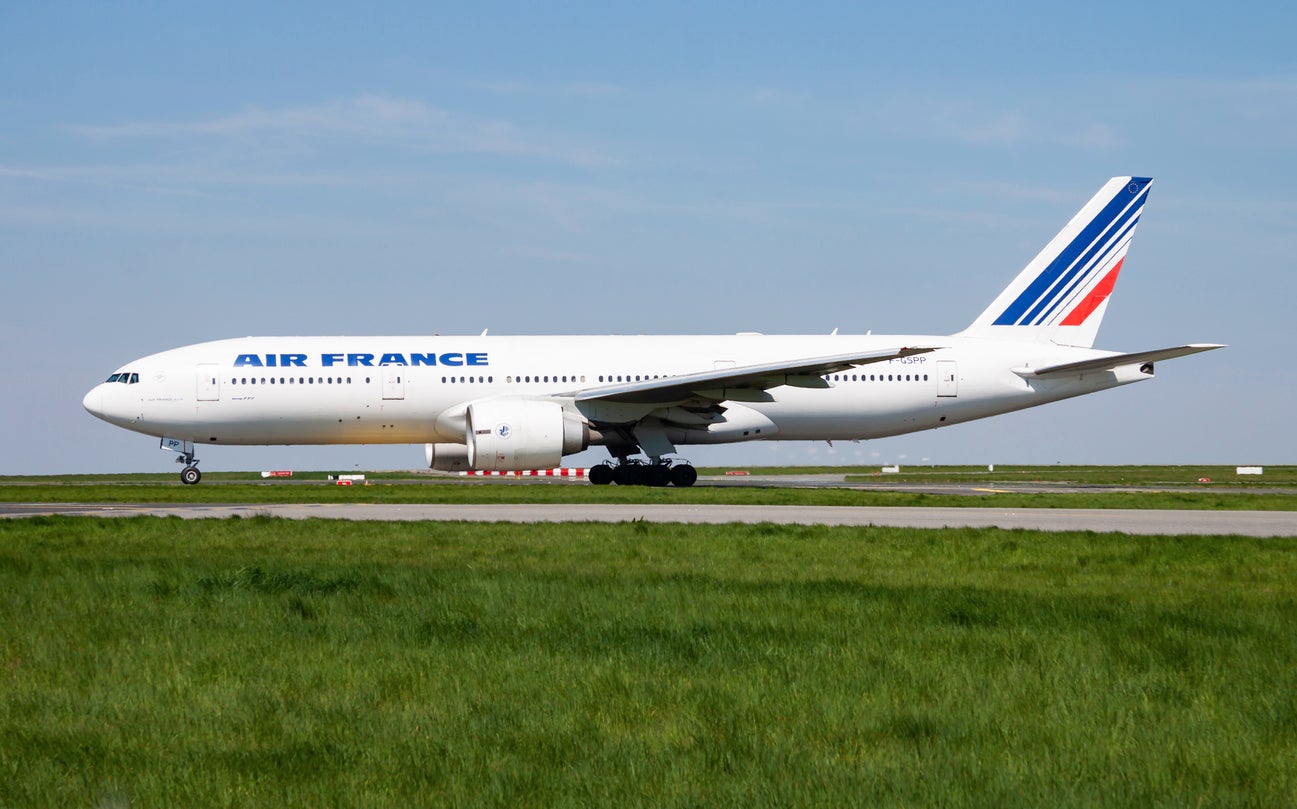Air France-KLM adds Sustainable Aviation Fuel levy to flights
Charge will be imposed on all airline group’s flights out of France or the Netherlands

Your support helps us to tell the story
From reproductive rights to climate change to Big Tech, The Independent is on the ground when the story is developing. Whether it's investigating the financials of Elon Musk's pro-Trump PAC or producing our latest documentary, 'The A Word', which shines a light on the American women fighting for reproductive rights, we know how important it is to parse out the facts from the messaging.
At such a critical moment in US history, we need reporters on the ground. Your donation allows us to keep sending journalists to speak to both sides of the story.
The Independent is trusted by Americans across the entire political spectrum. And unlike many other quality news outlets, we choose not to lock Americans out of our reporting and analysis with paywalls. We believe quality journalism should be available to everyone, paid for by those who can afford it.
Your support makes all the difference.The Air France-KLM airlines group has added a passenger tax to fund the use of Sustainable Aviation Fuel on its flights.
Ranging from €1 to €4 per flight, the levy will be imposed on all Air France, KLM and Transavia flights running from France or the Netherlands.
The €1 levy will apply to flights within Europe, while the €4 tax will be applied to intercontinental flights.
“Today, SAF production worldwide covers only around 0.1 per cent of the total fuel usage of the aviation industry. We need to speed up the production,” said Fahmi Mahjoub, general manager for Air France and KLM.
“And that’s why we are now gradually incorporating SAF in our flights departing from France and the Netherlands.”
Passengers will also have the option to increase their contribution towards sustainable fuel, said Mahjoub, in order to make their travels greener.
“SAF can reduce the footprint of flights by an average of 80 per cent over their entire life cycle and therefore constitute – alongside fleet renewal and eco-piloting – a major lever for achieving the ambition of zero net CO2 emissions by 2050,” read a statement from the group.
“The Air France-KLM Group’s decarbonisation trajectory is to accelerate SAF incorporation as production increases, with a target of 5 per cent in 2030 and up to 63 per cent in 2050.”
SAFs are produced with materials other than crude oil, and produce up to 80 per cent fewer carbon emissions - although this reduction is all in the production stage, with this type of fuel emitting at least as much CO2 inflight as traditional kerosene.
Several airlines have been trialling SAF as part of their jet fuel supplies - in December, United Airlines became the world’s first airline to operate a passenger flight with one engine running on 100 per cent SAF.
Meanwhile, British Airways has teamed up with SAF producer LanzaJet to contribute SAF to its flights from late 2022, as well as helping to fund its first commercial-scale plant in the US state of Georgia.
Its parent company IAG has announced plans to invest $400m in SAF over the next 20 years.
Join our commenting forum
Join thought-provoking conversations, follow other Independent readers and see their replies
Comments